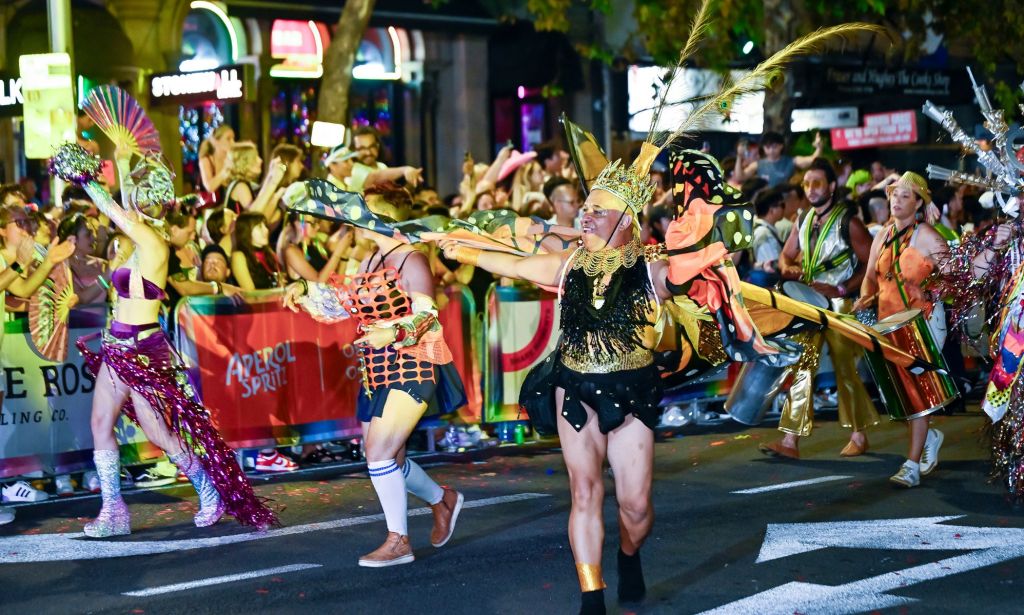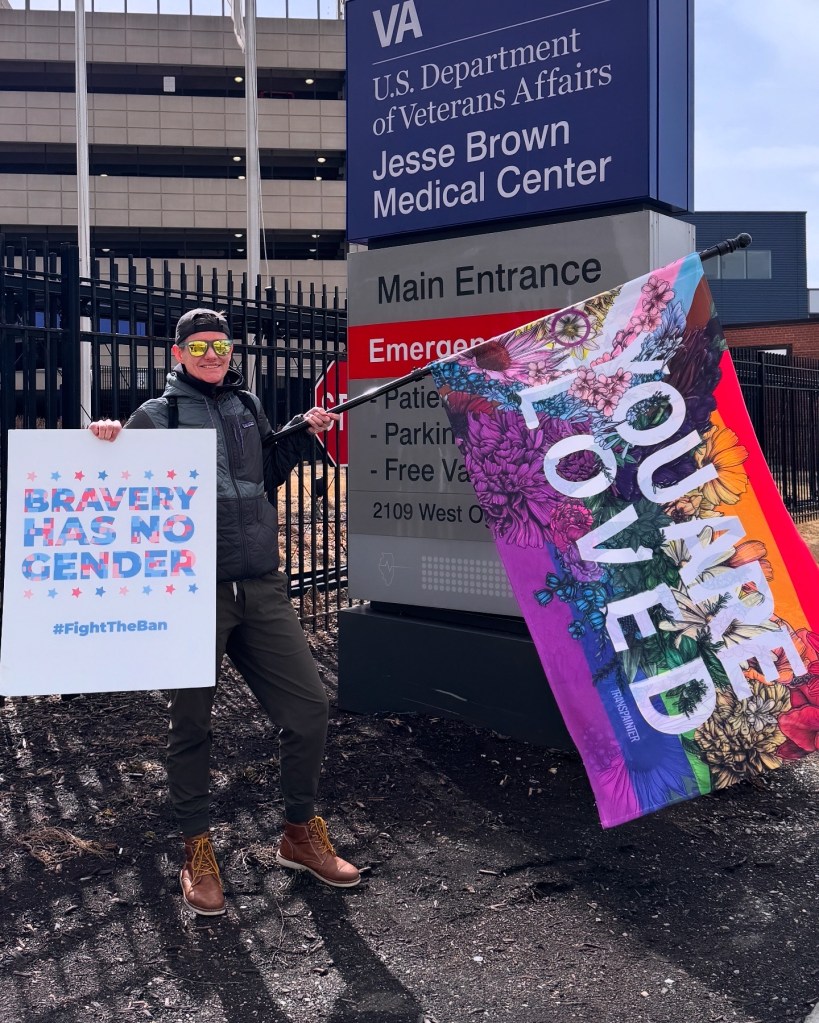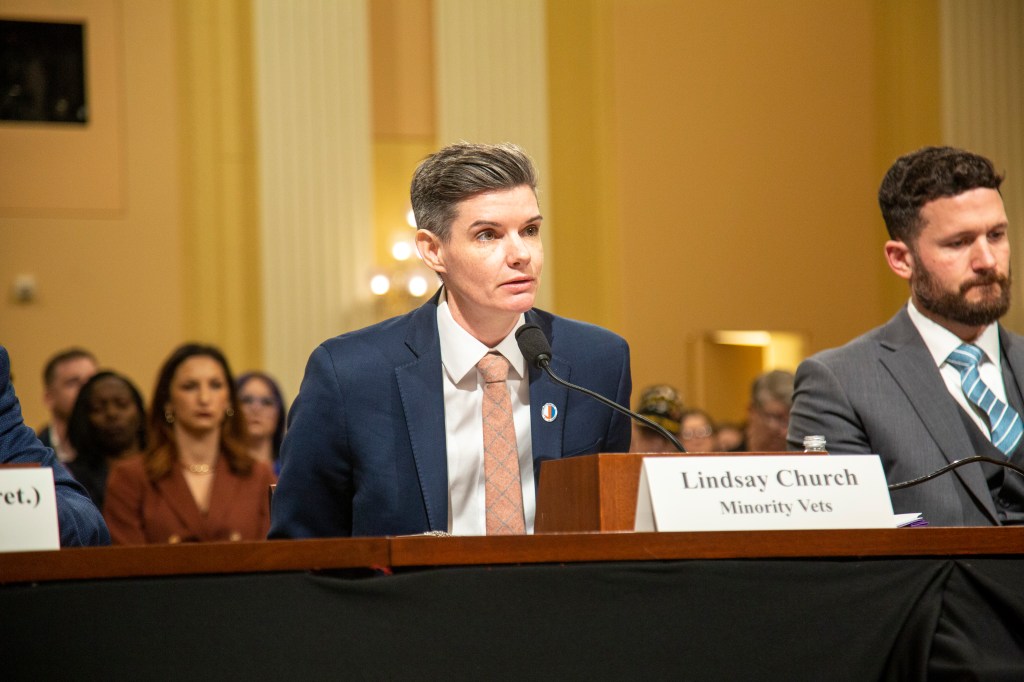Trump admin is trying to deport LGBTQ+ asylum-seekers to countries where they’d be killed, lawyers say
The Trump administration is quietly advancing immigration policies that attorneys and LGBTQ+ advocates say could send asylum seekers to their deaths, including by transferring queer and transgender people to countries such as Uganda and Iran, where same-sex relationships and gender nonconformity are criminalized and can be punished by imprisonment, torture, or execution.
Sign me up!
See what’s new and hot in queer entertainment, in your inbox three times a week.
Through third-country transfer agreements and aggressive deportation tactics, the administration is placing LGBTQ+ asylum seekers, many with what lawyers describe as strong, well-documented claims, at risk. Advocates tell The Advocate the policies mark a dangerous shift away from the United States’ long-standing obligation to protect people fleeing persecution based on who they are.
Bekah Wolf, an attorney with the American Immigration Council who represents LGBTQ+ asylum seekers from multiple countries, said her organization has identified a troubling pattern across immigration courts nationwide.
“These are not isolated cases,” Wolf told The Advocate. Because the council receives referrals from across the country, she said, it can see that similar outcomes are emerging regardless of jurisdiction.
LGBTQ+ asylum seekers facing possible removal to Uganda
Much of the concern centers on Uganda, where LGBTQ people face some of the most severe legal penalties in the world. Uganda’s Anti-Homosexuality Act, passed in 2023, prescribes life imprisonment for consensual same-sex relationships and allows for the death penalty in cases labeled “aggravated homosexuality.” The law also criminalizes what it calls the “promotion” of homosexuality, a provision that human rights groups say has been used to justify arrests, harassment, and the suppression of LGBTQ+ advocacy.
Ugandan authorities have continued to arrest men accused of same-sex conduct under these laws.
“Uganda is not a safe place for LGBTQ people,” Wolf said. “The idea that we would send people there to try to adjudicate their protection claims is deeply concerning.”
Wolf described multiple cases involving LGBTQ+ asylum seekers from Morocco, including a gay man and a transgender woman, whose asylum claims were denied or delayed and who now face possible removal under the administration’s third-country transfer policies.
In the gay Moroccan man’s case, Wolf said, government attorneys have asked an immigration judge to dismiss his asylum claim without fully adjudicating it, citing Uganda as an alternative destination. The man, who is in his late 20s, has been detained in U.S. immigration custody for more than a year. His case has been repeatedly postponed because the court has been unable to secure an interpreter for the rare language he speaks, which has prolonged his detention and left him in legal limbo, Wolf said.
“All the agreement says is that we can send people to Uganda and Uganda will decide whether to protect them,” she said. “That is absurd on its face, and especially absurd for LGBTQ+ people.”
For transgender asylum seekers, Wolf said, the risks are compounded by the U.S. government’s own posture toward gender identity. The Trump administration has publicly denied the existence of transgender people as a legitimate category under federal policy, a position that attorneys and advocates say inevitably shapes how immigration officials and judges assess transgender asylum claims.
“When a government takes the position that transgender identity doesn’t exist, it becomes much easier for decision makers to dismiss the reality of the danger those individuals face,” Wolf said. In asylum court, she said, that denial manifests as heightened skepticism, narrow interpretations of identity, and credibility determinations that hinge on rigid or outdated understandings of gender.
Wolf said her transgender woman client faces precisely those vulnerabilities — a system that questions whether her identity is “real,” whether it fits within outdated legal categories, and whether the harm she fears is sufficiently recognizable to merit protection.
The U.S.–Uganda agreement enabling third-country transfers
The potential removals are enabled by a 4-page agreement signed on July 29, 2025, between the United States and Uganda, viewed by The Advocate, that allows U.S. immigration authorities to transfer third-country nationals to Uganda for the examination of protection requests. Under the agreement, the United States may, at its discretion, propose transferring asylum seekers to Uganda, while Ugandan authorities retain full discretion over whether to accept those individuals and how to adjudicate their claims.
Wolf said the agreement represents a sharp departure from traditional asylum practice, in which claims are fully adjudicated in the country where protection is sought. Instead, she said, the agreement allows the U.S. government to bypass a merits determination altogether by arguing that another country is willing to take responsibility for the person, even when that country presents its own serious risks.
Related: Right-wing group won’t condemn Uganda’s ‘kill the gays’ law, enraging queer Democrats
Related: Pope welcomed Ugandan LGBTQ+ activist to Rome
“This is a mechanism to avoid hearing the asylum case at all,” Wolf said, describing government motions asking judges to pretermit, or dismiss, claims without evaluating the underlying fear of persecution. In her view, the agreement effectively shifts life-or-death decisions away from U.S. courts and into a system over which asylum seekers have no meaningful control or guarantees.
While the agreement states that transferred individuals will not be returned to their home countries until protection claims are resolved and references international refugee and anti-torture obligations, Wolf said those assurances are largely abstract. The text contains no enforceable standards for evaluating claims, no requirement that Uganda recognize sexual orientation or gender identity as grounds for protection, and no mechanism for independent oversight once a person is transferred.
In practice, Wolf said, that means LGBTQ+ asylum seekers could be sent to a country where their identity is criminalized and where authorities are hostile to their existence, with no realistic way to challenge the outcome.
“The agreement assumes a level of safety and fairness that simply does not exist for LGBTQ+ people in Uganda,” she said.
Wolf added that the agreement’s structure also leaves judges in uncharted territory. Because the policy is relatively new, she said, immigration courts have applied it inconsistently, with some judges unsure of the legal standards they should apply when the government invokes a third-country transfer. That uncertainty, she said, further disadvantages asylum seekers, who may be detained indefinitely while courts wrestle with how, or whether, to review the government’s actions.
Iranian cases underscore the danger LGBTQ+ asylum seekers face
Concerns about Uganda are unfolding alongside other high-stakes deportation cases that attorneys say reveal the same underlying dynamic.
Wolf also represents two gay Iranian men who are in a relationship, whom the Trump administration has sought to deport back to Iran, where homosexuality is illegal and punishable by imprisonment, torture, or death. The men fled Iran after being targeted because of their sexual orientation and sought asylum in the United States, but their claims, for which neither had legal representation, were denied, leaving them vulnerable to removal. A deportation flight to Iran on Sunday could have included one of the men.
However, their deportation has been delayed for now. One of the men has received a temporary stay from a federal court, while both were placed in quarantine during a measles outbreak in immigration detention, Wolf said. She cautioned, however, that the delay does not reflect a change in the government’s position.
“Some Iranians were deported on Sunday,” Wolf said. She said there is no clear way to know whether the men were spared removal because of the quarantine, political pressure, or a combination of factors, noting that immigration authorities do not disclose such decisions.
The Advocate contacted Department of Homeland Security spokesperson and Assistant Secretary for Public Affairs Tricia McLaughlin for comment on the potential deportation of LGBTQ+ asylum seekers to Uganda and Iran. She did not respond.
Advocates warn of life-threatening consequences
Shannon Minter, legal director of the National Center for LGBTQ+ Rights, said the administration’s deportation practices are extraordinarily dangerous. “We are gravely concerned by the dire harm being inflicted daily on LGBTQ individuals who have fled violence and oppression in their home countries and have valid asylum claims and yet are being deported to countries where their lives are at risk,” Minter told The Advocate.
He said the administration is “sending ICE agents to grab, detain, and immediately deport law-abiding gay and transgender people, who have committed no crimes,” including to countries such as Uganda, “where there is a death penalty for being LGBTQ.” Against what he described as a broader campaign targeting LGBTQ+ people, Minter called the deportations “the most severe and life-threatening harm being experienced by the greatest number of LGBTQ community members.”
David Stacy, vice president of government affairs at the Human Rights Campaign, said the treatment of LGBTQ+ asylum seekers reflects a wider pattern in the administration’s policies. “Freedom, equality, and safety are fundamental American values,” Stacy told The Advocate. “But the Trump administration has repeatedly targeted LGBTQ+ people across policy areas, and the appalling treatment of LGBTQ+ asylum seekers is part of that same pattern.”
Stacy cited cuts to programs that provide safety and care, weakened funding for HIV prevention and treatment, attacks on nondiscrimination protections, and policies targeting transgender people. “And now they are threatening to deport people to countries where they face imprisonment, violence, or death — a profound failure to uphold this nation’s most basic principles of human rights, dignity, and protections,” he said. “No one should be returned to a country where they would face persecution for who they are. That’s just cruelty beyond belief.”
A system stacked against LGBTQ+ asylum seekers
For transgender asylum seekers, the stakes are heightened not only by the risk of deportation but also by the treatment they receive while in U.S. immigration custody. The Advocate reported in July that the Trump administration has rescinded longstanding protections for transgender detainees in ICE custody, erasing policy requirements that detention facilities take into account gender identity when housing and caring for people held in immigration detention. Under updated detention standards, transgender immigrants can be classified strictly by the sex assigned at birth, housed without consideration of gender identity, and denied accommodations they were previously entitled to, including individualized custody plans and appropriate medical care.
Transgender detainees have reported denial of hormone treatments, lack of mental health care, and placement in facilities where their gender identity is disregarded or misunderstood, compounding trauma and increasing vulnerability to abuse and neglect.
Wolf said the cases also expose deep structural flaws in the U.S. asylum system that disproportionately harm LGBTQ+ applicants, particularly those who are detained. Central to the problem, she said, is the system’s reliance on subjective credibility determinations that often decide cases before the underlying danger is fully considered.
Judges frequently evaluate claims through narrow, Western frameworks of sexual orientation and gender identity, Wolf said, discounting testimony from people who do not use U.S.-centric language or whose understanding of their identity has evolved over time. Cultural differences, language barriers, and the absence of legal representation are often treated as credibility flaws rather than contextual realities, she noted.
“When you add baseline skepticism about asylum claims to bias against LGBTQ people, you get hearings that are invasive and legally unsound,” Wolf said.
Despite those obstacles, Wolf said she continues to pursue every available legal avenue. “If we can get a judge to actually look at the four corners of these asylum claims, we can win,” Wolf said. “The injustice here is stark. The problem is convincing the system to look.”








